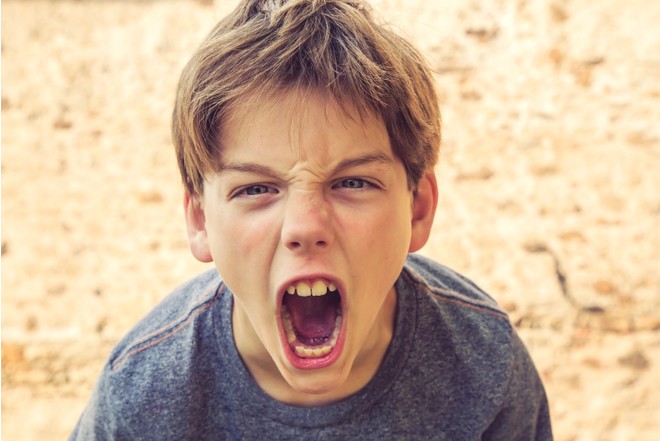A terrible case stirred up the world: In America, a teenager was arrested on suspicion of killing his parents. Foster parents - a boy once adopted for a long time in Russia. Besides him, there were three other children in the family, also adopted. Elderly parents coped as they could, but there were scandals, quarrels, and even the police had to call. And this is not the first such case. In May, for the murder of foster parents arrested a guy in Italy. He was also adopted in Russia - in St. Petersburg. Both boys were very small when they were taken away from the country. So it's hardly a problem in the upbringing of the previous guardians. Why then do children suddenly attack such people with such aggression who became a family? What do they lack? Why do they take revenge? Photo: GettyImagesConsulting psychologist Tatyana Ogneva-Salvoni:
Photo: GettyImagesConsulting psychologist Tatyana Ogneva-Salvoni: — From the point of view of psychology, internationalAdoption is very different from adoption in the country of origin in terms of its impact on the child's psyche. It doesn't matter that the conditions there may be better and almost paradise compared to the place where the child was taken from. He needs to get used not only to his new parents, but also to a new country, a new language, a new world. The stress of loss is many times higher. The child loses everything, including what once helped him survive. This subconsciously draws him back to where he was taken from. And if the adoptive parents also speak negatively or dismissively about the child's biological parents, about the country from which he was taken, then this hurts greatly. He becomes a tree without roots, his most important years of life, the first years, are as if crossed out, he is forced to be ashamed of them. Psychologists put forward various hypotheses about why such tragedies can occur, when an adopted child from another country kills his adoptive parents. Firstly, the same rejection and disdain of adoptive parents for the child's "roots" - biological parents and country of origin. And this does not necessarily manifest itself in a sharp form, rather in an ordinary one. But for the child, the hint itself hurts. Secondly, disrespect for the extra efforts that the child had to show to survive initially, to survive the move, to adapt to a new country, the condescension of a kind of prosperous "savior" that an adoptive parent can show to the child. This also offends, angers and provokes aggression. Thirdly, by the time the child is adopted, he or she may have already developed a destructive attachment, that is, an inability to have close contact with other people, a tendency to cruelty, an unwillingness to follow norms of behavior, etc. Adoptive parents can, through love, patience and attention, correct the form of attachment, melt the heart of a traumatized child. But if they lack strength, if they unconsciously put prohibitions on the manifestation of negative feelings, plus the above is added, then in order to drown out the mental pain, the grown-up child easily falls into some kind of addiction. There are approved forms of addiction - sports, career, study, and there are destructive ones, like drugs, which, of course, one day release from the shadow part of the soul everything repressed from early childhood - anger, resentment, shame. And children bring this down on their adoptive parents as the closest people to them. When there is too much repressed pain and anger, it can lead to such tragedies.
— From the point of view of psychology, internationalAdoption is very different from adoption in the country of origin in terms of its impact on the child's psyche. It doesn't matter that the conditions there may be better and almost paradise compared to the place where the child was taken from. He needs to get used not only to his new parents, but also to a new country, a new language, a new world. The stress of loss is many times higher. The child loses everything, including what once helped him survive. This subconsciously draws him back to where he was taken from. And if the adoptive parents also speak negatively or dismissively about the child's biological parents, about the country from which he was taken, then this hurts greatly. He becomes a tree without roots, his most important years of life, the first years, are as if crossed out, he is forced to be ashamed of them. Psychologists put forward various hypotheses about why such tragedies can occur, when an adopted child from another country kills his adoptive parents. Firstly, the same rejection and disdain of adoptive parents for the child's "roots" - biological parents and country of origin. And this does not necessarily manifest itself in a sharp form, rather in an ordinary one. But for the child, the hint itself hurts. Secondly, disrespect for the extra efforts that the child had to show to survive initially, to survive the move, to adapt to a new country, the condescension of a kind of prosperous "savior" that an adoptive parent can show to the child. This also offends, angers and provokes aggression. Thirdly, by the time the child is adopted, he or she may have already developed a destructive attachment, that is, an inability to have close contact with other people, a tendency to cruelty, an unwillingness to follow norms of behavior, etc. Adoptive parents can, through love, patience and attention, correct the form of attachment, melt the heart of a traumatized child. But if they lack strength, if they unconsciously put prohibitions on the manifestation of negative feelings, plus the above is added, then in order to drown out the mental pain, the grown-up child easily falls into some kind of addiction. There are approved forms of addiction - sports, career, study, and there are destructive ones, like drugs, which, of course, one day release from the shadow part of the soul everything repressed from early childhood - anger, resentment, shame. And children bring this down on their adoptive parents as the closest people to them. When there is too much repressed pain and anger, it can lead to such tragedies.

Making Money with Desserts: Success Stories
Evgeniya Polischuk (Fedutinova) instagram:@evgeniyafedutinovavk.com/janeshomebaking– It all started with baking for family and friends. Gradually, I started posting photos of my baked goods on Instagram – and orders started coming in. I made my first custom-made cake on October 13, 2014, and a little earlier I started making macaroons and cupcakes. You could say that the business “found me”, I am very […]

Soups are cold recipes with photos
Cold cucumber soup with yogurt and lemonsorbet from the chef of the restaurant La Taverna Alexander Zhurkin Photo: Getty Images Ingredients: Plain yoghurt – 125 g Cucumber – 150 g Lemon/lime sorbet – 50 g Cocktail shrimp – 24 g Fresh ginger juice – 1 g Lime juice – 5 g Fresh orange juice – 5 g Parsley – 1 g Pink pepper – 1 g Watercress – […]

barbeque kebab
Pork tenderloin in glaze Photo:Dmitry Bayrak/dbstudioPreparation time: 20 minutes + marinating time.Calories: 454 kcal per serving.For 4 servings: 4 pork tenderloins (approximately 300 g each), 1 onion, 2 cloves of garlic, 1 tsp. lemon zest, 1 tsp. lemon juice, a pinch of ground cumin, coriander and turmeric, 1 tbsp. vegetable […]

Pierre Duacan: dietary recipes: Ducane diet
Beetroot soup Photo:Season’S, Luxury Hotels RepresentationYou will need:· Boiled beetroot – 60 g· Fresh cucumbers – 20 g· Red radish – 20 g· Green onions – 10 g· Egg – 1 pc.· Drinking mineral water – 200 g· Salt – 1 gPreparation:· Boil the egg and beetroot.· Grate the cucumbers, radish and part of the beetroot. Put everything […]





